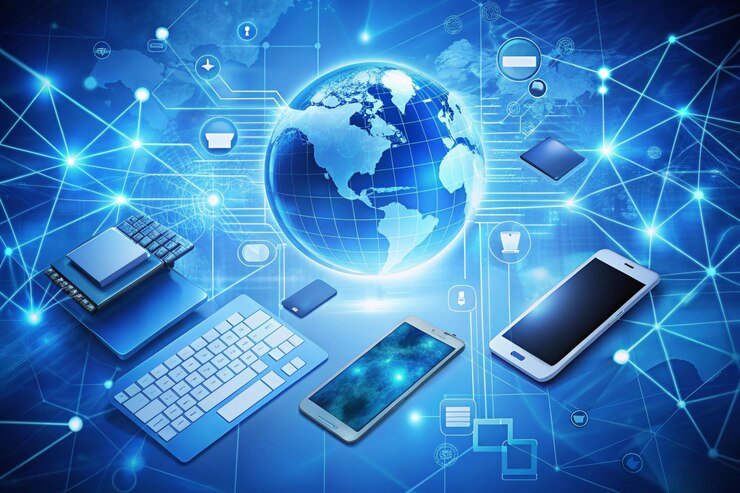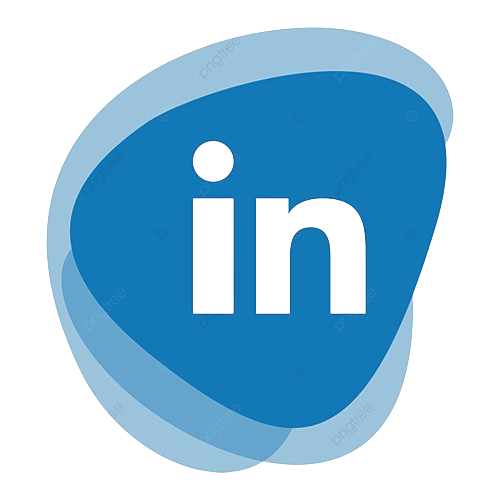Exploring the Role of ICT in Modern Society
The information and Communication Technology (ICT) sector is not only the most dynamic but has also become one of the most transformative ones in this modern era. From how we talk to each other online, the Internet is also used in businesses; governments, and individual life which has changed it. ICT remains the lifeblood of global innovation as technology advances, linking people, ideas, and resources in ways that were impossible until now. This paper discusses the importance of ICT as a cross-cutting enabler; what is being done now and its future potential in (re-)structuring society.
Defining Information and Communication Technology
In essence, ICT refers to the use of technology for handling information and telecommunications. This has been the case with the internet, wireless networks cell phones, etc. ICT refers to the combination of computers and telecommunication hardware, including cellular devices. This also involves the networking infrastructure such as fiber optics and satellites that enable data to be transmitted over long distances. The main aim of ICT is to provide faster communication and information processing technology which can help individuals, businesses improve performance.
ICT has become wider range of things than communication within(lately) years. Data management, automation, artificial intelligence, and digitization of sectors such as education, healthcare, finance entertainment are incomplete without it.
ICT in Education: Bridging Knowledge Gaps
In education, the effects of ICT are one area that has significantly influenced. Nowadays, e-learning portals allow students across the world access to resources and education which could avail only in case of proper visa processing by immigration lists. Education has entered a new era with online courses, digital textbooks, and even virtual classrooms that made education more inclusive and accessible to all types of people no matter where they are from or their economic background.
ICT tools like video conferencing, cloud storage solutions, and group collaboration systems allow teachers to supplement traditional ways of teaching. They also facilitate student interactions with the content in ways that encourage a deeper experience of topics. ICT is bridging the educational gap in developing countries where cheap learning can be afforded and all are offered a level playing field.
ICT in Business: Driving Efficiency and Innovation
ICT has been highly influenced by the digital economy which is beating a direct influence on the business world. It helps companies streamline, reduce costs, and communicate better. From email to the advent of cloud computing, many tools we have in ICT have replaced manual processes. Customer relationship management (CRM) systems, for example, help businesses to follow up with customers they have interacted with sales, feedback, or both to keep their marketing targeting and customer service sharper.
ICT also helped bring e-commerce to a global platform allowing orders and transactions at any time of the day, from almost anywhere in the world Furthermore, companies such as Amazon or Shopify would not be able to exist without ICT since their business model is heavily dependent on (to name a few examples) internet connectivity (communication), secure payment schemes and data analytics. ICT is increasingly employed by enterprises to spur innovation, deploying technologies like artificial intelligence and blockchain for novel offerings such as fintech products that appeal to a tech-literate customer.
ICT in Healthcare: Revolutionizing Patient Care
The use of ICTs in medicine has significantly transformed this sector contributing to an enhanced level of patient care and facilitating work efficiency. However, today Electronic Health Records (EHR) replaced the old traditional paper records creating a place for various healthcare providers to access patient information. It had a positive impact on diagnostic quality and treatment results.
Telemedicine, based on ICT is also emerging as a new normal, especially during the Covid-19 pandemic. This allows patients to see a healthcare professional without having to be at his/her office. The benefit of convenience has not only helped in increasing access to health care services for people living or working in rural/ hard-to-reach areas but also, it can be more convenient especially where patients cannot travel. The medical sector continues to leverage improvements in ICT, driving innovative advancements which use more-than-ever artificial intelligence and data analytics for drug discovery (eg., new medicine generation), personalized medicine as well as disease prevention.
ICT in Government: Enhancing Public Services
ICT was adopted also by governments worldwide to modernize and improve public administration in general. The e-government platforms enable citizens to avail of various services, including payment of taxes, applying for permits, and renewing documents virtually without needing to visit a government office in person. This has improved efficiency, minimized bureaucratic delays, and consequently, added to the transparency of governance.
In addition, ICT provides a rich source of data for governments to make policy decisions and better deliver services. Local governments can use data from smart city initiatives (traffic sensors, public transportation networks, or environmental monitoring systems) to improve urban planning and reduce congestion while promoting sustainability. The role of ICT can be realized in managing the disasters such as real-time operations to establish communication among all units and authorities so that they respond faster on the occurrence of any disaster.
Challenges Facing ICT
As with anything ICT has its drawbacks. One of the major problems is the digital divide which is about access and not. The absence of infrastructure, electricity, and access to affordable internet in many developing countries keeps a huge population away from the benefits of ICT. This digital divide necessitates that we close the gap to allow everyone equal participation in the Digital Economy and provide services required for welfare.
Another headache that has been troubling mankind in recent times is cybersecurity. With growing data and information being shared digitally, the possibility of hacking or a cyber attack is certainly on the rise. Trusted electronic systems are key to protecting sensitive data, securing networks, and ensuring individual privacy in ICT. This will avoid providing avenues to cyber attacks for hackers and other malicious people through the use of these types of vulnerabilities in digital infrastructure by their governments or organizations.
Moreover, the velocity of technology change is staggering and forces individuals (and businesses) into adopting new tools/systems, on an ongoing basis. For some who aren’t digitally native or received a different kind of training/education, this can be hard. Digital literacy is vital for the long-term sustainability of ICT to guarantee that users/posers have the necessary skills to manage within an increasingly digitalized ecosystem.
The Future of ICT
ICT will certainly change in the future and adapt, especially for artificial intelligence, 5G network capability going forward to build the Internet of Things (IoT), quantum computing, etc. These are new technological advancements that could revolutionize communication, data processing, and automation in turn increasing the opportunities available to businesses, governments as well individuals.
Overall, Information and Communication have changed the way of living, and working together. These ripple effects cross-industry sectors from education to healthcare, business, and government. Despite challenges including the digital divide and cybersecurity, few now dispute that ICT has massive potential to do good. As we are moving toward a more global world, ICT will increasingly shape our future as the catalyst not just for business and economic change, but also affecting society across centuries.



